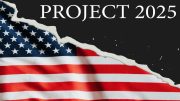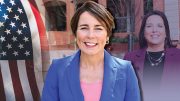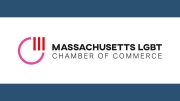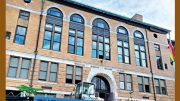
Councilor Tito Jackson and Councilor Ayanna Pressley listen to testimonies at June’s Boston City Council hearing on the status of Boston’s Black men and boys.
Photo Credit: The Fab Empire
By: Justin Nash*/Special to TRT—
Did you know that the Boston City Council is in the beginning stages of creating a commission to address the needs of black men and boys in Boston? On June 24, 2014 the Boston City Council’s Committee on Government Relations held a public hearing on the status and needs of black men and boys in Boston. The ordinance to create a commission was proposed by Councilor Tito Jackson and directed to the Committee on Government Operations in February. Jackson highlighted that there was no formal commission to support the economic advancement, educational attainment, business ownership or political influence of black men and boys. The commission will eventually consist of 14 individuals who will advise Mayor Walsh, City Councilors, and city departments on strengthening pathways to success for one of Boston’s most underserved populations.
This is huge news with great potential! The Boston City Council has taken an important step by intentionally engaging the perspectives of black men and boys while evaluating how policies and laws can impact black men and boys, as well as the larger black community in Boston. This is also a unique opportunity for the city to encourage unity and inclusion of all black men and boys, including gay, bisexual, transgender and queer black men. It is critically important that men and boys from these communities are brought to the table to have their voices and concerns recognized. [pullquote]Jackson highlighted that there was no formal commission to support the economic advancement, educational attainment, business ownership or political influence of black men and boys. The commission will eventually consist of 14 individuals who will advise Mayor Walsh, City Councilors, and city departments on strengthening pathways to success for one of Boston’s most underserved populations.[/pullquote]
Councillor Jackson led the recent hearing and some key questions were raised to the community such as “What are the largest issues/obstacles facing young men of color?” and “What policy recommendations do you have for Boston City Council in regards to men of color?“ The discussion was divided in four focus areas: Employment, Education, Justice System, and Health & Wellness.
To ensure that the perspectives of gay, bisexual, trans and queer voices were included, Corey Yarbrough and Amir Dixon spoke on behalf of the Hispanic Black Gay Coalition (HBGC) during the Health and Wellness discussion. Corey serves as Executive Director of HBGC and Amir Dixon as a board member of HBGC.
The two discussed HIV/AIDS as a major issue still impacting the health and wellness of Black men in Boston. According to research presented at the International AIDS Conference 2012, the rate of infection each year for black gay men under 30 is approaching 6%. Also, another study funded by the National Institutes of Health found that among black gay men almost 3% are infected each year. That is nearly twice the rate for white men under 30 who have sex with men. The current rate of infection is very troubling. Kenneth Mayer, medical research director at Fenway Health cautions “At this rate, more than half of young black gay men would be infected with HIV in only a decade.” [pullquote]Kenneth Mayer, medical research director at Fenway Health cautions “At this rate, more than half of young black gay men would be infected with HIV in only a decade.”[/pullquote]
HOMELESSNESS was also addressed as a significant concern; it often prevents black LGBTQ people from securing or maintaining jobs, eating healthy, or acquiring adequate health care. Although only 5-7% of all youth in America are LGBTQ, they comprise nearly 40% of all homeless youth in America. Of this population, 44% of homeless gay youth are Black according to the Center for American Progress.
Another prominent concern is mental health and safe spaces for LGBTQ youth. According to the Massachusetts Youth Risk Behavior Survey, gay, lesbian and bisexual youth are over 4 times more likely to attempt suicide in Massachusetts than their straight peers. Gay, lesbian, and bisexual (GLB) youth are over 4 times more likely to skip school because they don’t feel safe and over 2 times more likely to be attacked with a weapon in MA high schools. All of the risk behaviors for GLB youth are significantly higher than for straight youth including HIV, violence, and substance abuse.
Recommendations offered by HBGC consisted of: intentional inclusion of at least one gay/ bisexual black man as well as one black transgender man on the newly established commission, inclusion of LGBTQ voices of color in all policies considered by the city, support with the enforcement of comprehensive sex education in public schools, funding to support safe and supportive spaces in schools, and support for LGBTQ-centric health centers and homeless shelters in communities of color. [pullquote]Although only 5-7% of all youth in America are LGBTQ, they comprise nearly 40% of all homeless youth in America. Of this population, 44% of homeless gay youth are Black according to the Center for American Progress.[/pullquote]
Current programs and services that HBGC provide that compliment these recommendations include their annual Youth Empowerment Conference, rotating sexual health fairs, monthly support groups, New Leaders Institute and Gay-Straight Alliance development in high schools.
This future commission on black men and boys is a long overdue step for the city of Boston to show that it is committed to the empowerment and advancement of black people. Only time will tell if the city will take this as a chance to value the involvement of its black gay, bisexual, transgender, and queer men as well.
*Justin Nash is a student at Brandeis University. They are also an intern at HBGC serving as the organization’s advocacy coordinator. Contact them at jnash@hbgc-boston.org.







